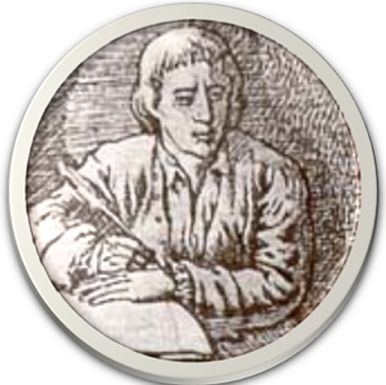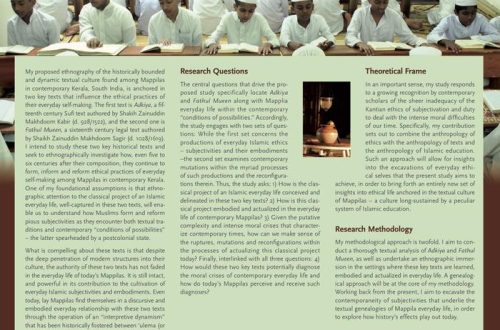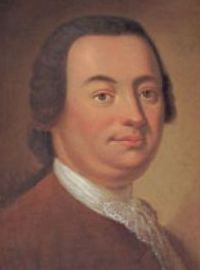
Maxim Sozontovich Berezovsky |
Maxim Berezovsky
Creativity of the outstanding Russian composer of the second half of the XNUMXth century. M. Berezovsky, along with the work of his famous contemporary D. Bortnyansky, marked the onset of a new, classicist stage in the musical art of Russia.
The composer was born in Chernihiv region. He allegedly received his initial musical education at the Glukhov Music School, famous for its singing traditions, and then continued it at the Kyiv Theological Academy. Upon arrival in St. Petersburg (1758), the young man, thanks to his beautiful voice, was assigned to the staff of musicians of the heir to the throne, Peter Fedorovich, where he began to receive composition lessons from F. Zoppis and vocals from the Italian teacher Nunziani. At the turn of the 1750-60s. Berezovsky had already performed important roles in the operas by F. Araya and V. Manfredini, which were performed on the court stage, competing in skill and virtuosity with the best Italian singers. After the palace coup in 1762, Berezovsky, like other artists from the state of Peter III, was transferred by Catherine II to the Italian troupe. In October 1763, the composer married Franziska Iberscher, a dancer from the troupe. Speaking with solo parts in opera performances, Berezovsky also sang in the Court Choir, which led to the composer’s interest in choral genres. According to the biographer P. Vorotnikov, his first spiritual concerts (“Come and see”, “All the tongues”, “We praise God to you”, “The Lord reigns”, “Praise the Lord from heaven”) showed his exceptional talent and good knowledge of the laws of counterpoint and harmony. In May 1769, Berezovsky was sent to Italy to improve his professional skills. At the famous Academy of Bologna, according to legend, he studied under the guidance of the outstanding theorist and teacher Padre Martini.
On May 15, 1771, a little later than W. A. Mozart, having passed the exam together with the Czech composer I. Myslivechek, Berezovsky was accepted as a member of the Academy. In 1773, commissioned for Livorno, he created his first and probably the only opera, Demofont, the success of which was noted in the Livorno newspaper: “Among the performances shown during the last carnival, it should be noted in the service of Her Majesty the Empress of All Russia, signor Maxim Berezovsky, who combines liveliness and good taste with musical knowledge. The opera “Demofont” summed up the “Italian” period of Berezovsky’s life – on October 19, 1773, he left Italy.
Returning to Russia in the prime of his creative powers, Berezovsky did not meet the proper attitude towards his talent at court. Judging by archival documents, the composer was never appointed to a service corresponding to the title of a member of the Bologna Academy. Having become close with G. Potemkin, Berezovsky for some time counted on a position in the proposed Musical Academy in the south of the country (besides Berezovsky, the prince was also going to attract J. Sarti and I. Khandoshkin). But the Potemkin project was never implemented, and Berezovsky continued to work in the chapel as an ordinary employee. The hopelessness of the situation, the personal loneliness of the composer in recent years led to the fact that, falling ill with a fever in March 1777, Berezovsky committed suicide in one of the attacks of the disease.
The fate of the composer’s creative heritage is dramatic: most of the works that were performed throughout the 4th century remained in manuscript for a long time and were kept in the Court Chapel. At the beginning of our century, they were irretrievably lost. Of the instrumental works of Berezovsky, one sonata for violin and cembalo in C major is known. The score of the opera “Demofont”, staged in Italy, has been lost: only 1818 arias have survived to this day. Among the numerous spiritual compositions, only the Liturgy and a few spiritual concertos have been preserved. Among them are The Lord Reign, which is the earliest example of the classicist choral cycle in Russia, and Do Not Reject Me in Old Age, which became the culmination of the composer’s work. This concerto, in comparison with other works of recent years, has a happier fate. Due to its popularity, it became widespread and was printed twice in the first half of the 1841th century. (XNUMX, XNUMX).
The influence of melody, polyphonic technique, harmony and figurative structure of the concerto can be traced in the work of Berezovsky’s younger contemporaries – Bortnyansky, S. Degtyarev, A. Vedel. Being a true masterpiece of musical art, the concert “Do not reject” marks the onset of the classical stage in the development of domestic choral creativity.
Even individual samples of Berezovsky’s work allow us to speak about the breadth of the composer’s genre interests, about the organic combination in his music of national melody with pan-European techniques and forms of development.
A. Lebedeva





